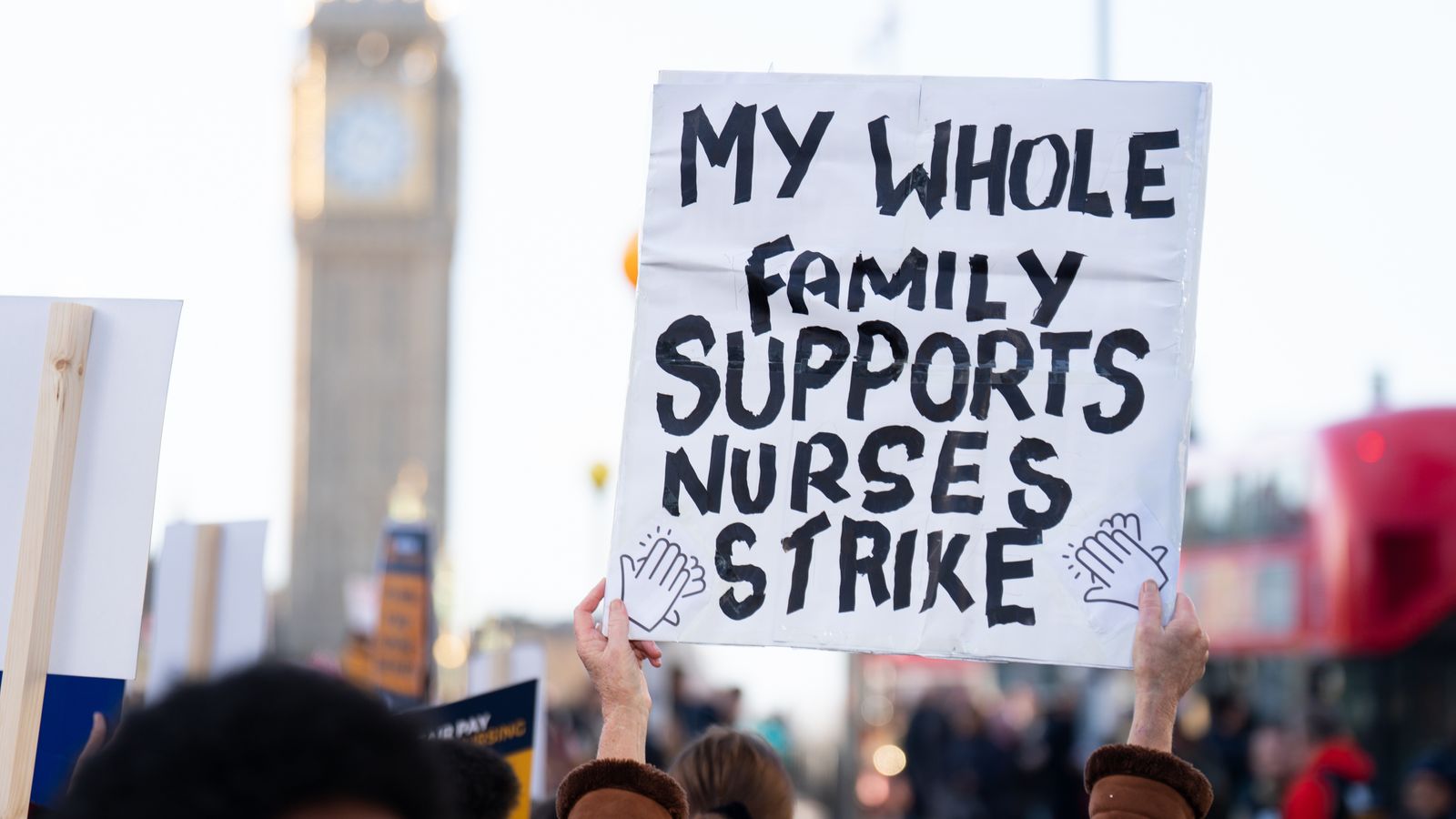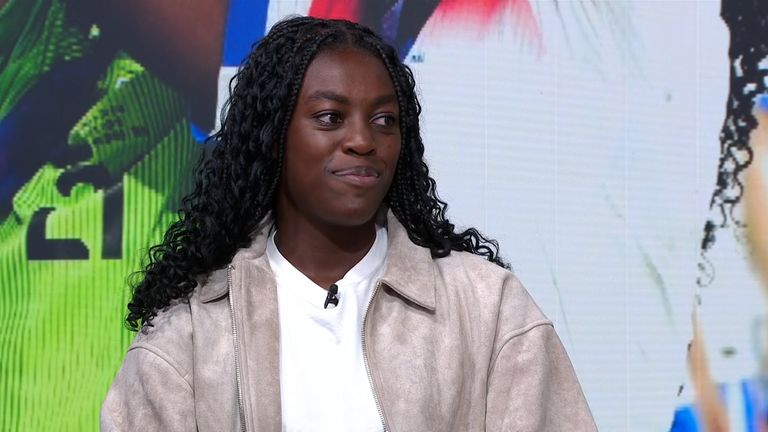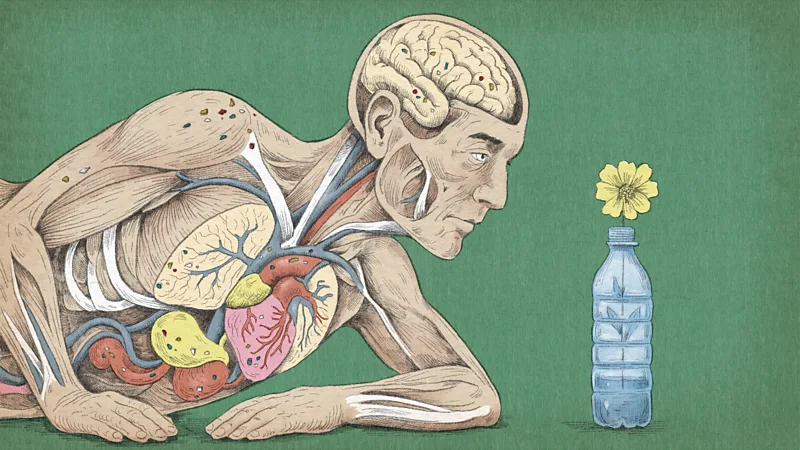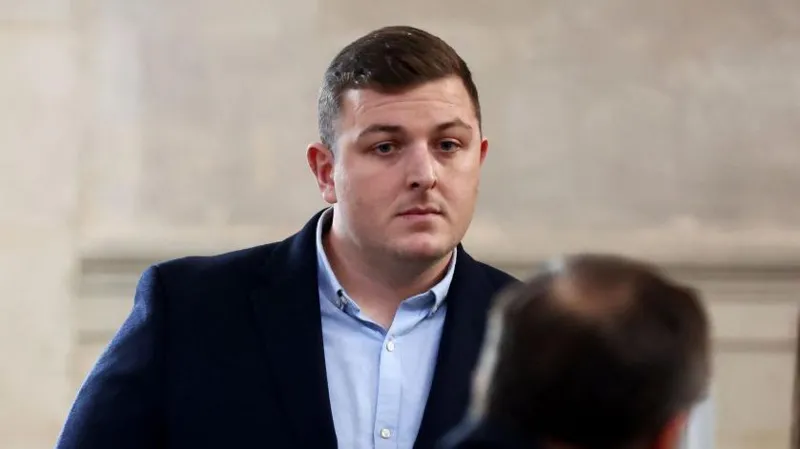Politics latest: 'Worst thing we could do' - minister dismisses 'significant' public sector pay rise as nurses begin 48-hour walkout
Health Secretary Steve Barclay says patients would suffer if nurses get a pay rise, as a 48-hour strike begins. Rishi Sunak and Sir Keir Starmer face down at Prime Minister's Questions this lunchtime.

Thousands of nurses will go on strike today as a bitter pay dispute with the government continues.
Nursing staff from more than 55 NHS trusts will take part in industrial action on Wednesday and Thursday following two days of action in December.
The Royal College of Nursing (RCN) has announced that two further, bigger strikes will be held next month, while the GMB union is expected to announce further ambulance worker strike dates this afternoon. Junior doctors are also preparing to walk out.
Thousands of operations and appointments are expected to be cancelled during the two consecutive days of strike action. Almost 30,000 needed to be rescheduled following December's nurse strikes.
Patients have been told to attend all their usual appointments unless they have been contacted.
NHS England said patients should use services "wisely" by going to NHS 111 online but continuing to call 999 in a life-threatening emergency.
The RCN has agreed to staff chemotherapy, emergency cancer services, dialysis, critical care units, neonatal and paediatric intensive care.
Some areas of mental health and learning disability and autism services are also exempt from the strike, while trusts will be told they can request staffing for specific clinical needs.
When it comes to adult A&E and urgent care, nurses will work Christmas Day-style rotas.
RCN chief executive Pat Cullen said: "Today's strike action by nursing staff is a modest escalation before a sharp increase in under three weeks from now... People aren't dying because nurses are striking. Nurses are striking because people are dying."
The RCN has been calling for a pay rise at 5% above inflation, though it has said it will accept a lower offer.
Health and Social Care Secretary Steve Barclay said while he recognises the cost of living pressures on NHS staff, "unaffordable pay rises" will stoke inflation.
Separately, Mr Barclay has signalled that pay negotiations will look ahead to next year rather than reflecting on the 2022/23 pay award, which unions have said must be reviewed.
Majority of public think government is more to blame in pay row
Meanwhile, nearly three in five Britons (57%) think the government is more to blame than nurses (9%) for the ongoing pay row lasting so long, according to a new Ipsos poll of 1,080 British adults, carried out earlier this month.
-sky news







